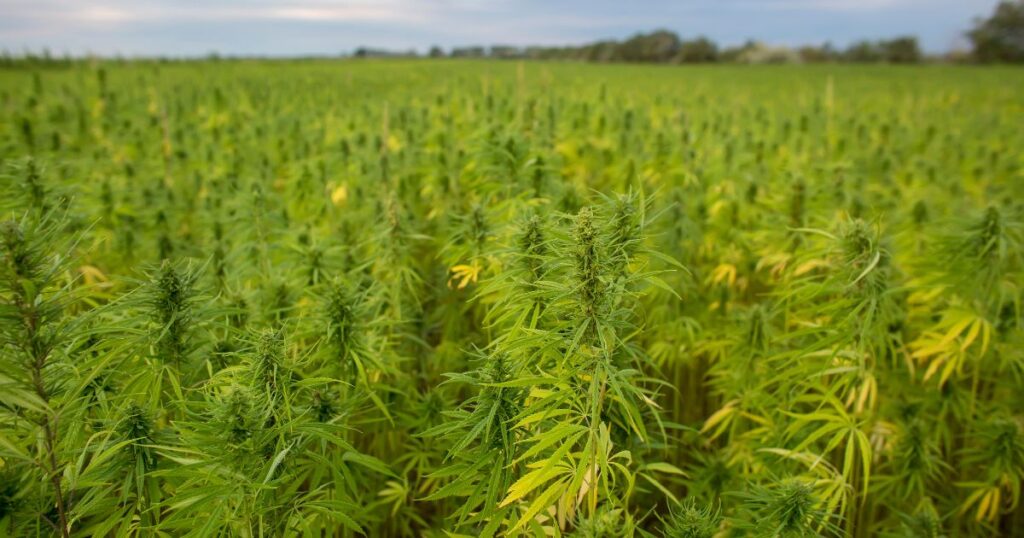New legislation negotiated in the Senate Appropriations Committee could effectively ban many hemp-derived products currently sold across the country. If enacted, the proposal would significantly amend the 2018 Farm Bill, which famously legalized hemp by distinguishing it from marijuana.
The proposed legislation, part of the larger appropriations package named Agriculture, Rural Development, Food and Drug Administration, and Related Agencies Act, 2026, funds various federal agencies. Its text includes provisions that redefine legal hemp, introducing stricter limits on THC content and targeting specific types of cannabinoid products.
This potential shift in federal policy stands to reshape the landscape for hemp farmers, manufacturers, retailers, and consumers. Many have built businesses and routines around the products legalized just a few years ago.
Redefining Hemp: What the Legislation Proposes
The 2018 Farm Bill, signed into law by President Donald Trump, legalized hemp by defining it as a cannabis plant containing no more than 0.3 percent delta-9 THC on a dry weight basis. This distinction opened the door for a wide array of products. It included CBD oils, edibles, and other items containing various cannabinoids derived from the hemp plant.
The new legislation seeks to close what some lawmakers see as a loophole. It amends the definition of hemp by changing the standard from “delta-9 THC” to “total THC.” This is a crucial distinction. It would include not only delta-9 THC but also other isomers like delta-8 THC and “any other cannabinoids that have similar effects… on humans or animals.”
The authority to determine which cannabinoids have “similar effects” would fall to the Secretary of Health and Human Services. This change would take effect one year after the bill’s enactment.
Furthermore, the bill introduces a specific quantitative limit for finished products. Under the new rules, legal hemp products would be restricted to a total of 0.4 milligrams of total THC per container. This is a significant departure from the current standard, which focuses on the concentration by dry weight rather than a total milligram cap.
Which Hemp Products Would Be Banned?
The proposed changes would explicitly ban several categories of products that have become popular in the current market. The legislation takes aim at cannabinoids that are not naturally produced by the cannabis plant or are synthesized outside of it.
The bill specifically excludes the following from hemp’s legal definition:
- Synthesized Cannabinoids: Products containing cannabinoids synthesized or manufactured outside the plant.
- Unnatural Cannabinoids: Products with cannabinoids a Cannabis sativa L. plant cannot naturally produce.
- Intermediate Products: The bill bans intermediate hemp-derived cannabinoid products marketed or sold as final products or directly to end consumers.
To enforce these new definitions, the bill would require the Food and Drug Administration (FDA) to publish several lists within 90 days of its passage. These lists would detail all known naturally occurring cannabinoids in the cannabis plant. They would also include all known naturally occurring THC-class cannabinoids, and any other cannabinoids known to have effects similar to THC.
What Happens Next?
The proposed legislation was agreed upon by key figures in the Senate and House Appropriations Committees. This includes Senate Chair Susan Collins (R-ME) and Senator Patty Murray (D-WA). However, not all committee leaders have signed off.
As part of a major funding package, the bill is expected to be considered in the Senate soon. Its passage would represent a fundamental reversal of the policy established by the 2018 Farm Bill. This would send shockwaves through a multi-billion dollar industry that has grown rapidly under the current legal framework. The outcome will determine the future for countless businesses and the availability of products that many consumers have come to rely on.
- Missouri Hemp Ban Ignites Legal Battle With The State
- Florida’s Heavy Hitting Hemp Ban Passes Senate and Awaits Governor Approval
- California’s New Hemp-Derived THC Ban Goes Beyond the 2018 Farm Bill
- Texas Senate Bill 3 Would Kill Entire Hemp Industry and Deny Accessible Medicine
- Texas Senate Bill 3 Passes Senate and House, Heads to Governor’s Desk
















